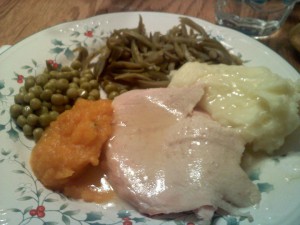“I need to start a diet”, is a phrase you’ve probably heard countless times. You may have even looked into starting a diet yourself, but quickly come to the realization that you are way over your head in too many diet fads to choose from. Ketogenic, paleo, Atkins, mediterranean, vegan, low-fat, low-carb, gluten-free….. I can keep going. So it leaves people too frustrated to even try. Most of these diets want you to limit your simple sugars, eat more lean proteins and focus on vegetables. This is an important step to a healthy diet, but have you ever stopped to think about how much our behavior directly impacts our physical health as well?
Recent research suggests that not only what we eat, but also when we eat has a significant impact on weight loss and physical health. Think of this for a moment – you roll out of bed and decide you’re too tired to grab something to eat and you head to class, noon comes around and you grab something small from the nearest food vendor before your next class, then dinner arrives and you prepare the biggest plate of food and feast until you are completely full (which by the way is considered bingeing and is bad for your digestive health). Do you see the problem? No it’s not just because you skipped breakfast; you consumed the greatest amount of calories for one day’s time right before you settle in for the night. The majority of Americans eat this way due to our demanding lifestyles and tight schedules; is it a habit we should consider changing? I would argue, YES!
Research also finds that our metabolism gradually increases throughout the day and peaks during midday, approximately from 10am-2pm. After this, our metabolism slowly decreases as the day wanes and we start to wind down for the evening. Why does this occur? Well, it is suggested that our metabolic processes are intimately linked with our sleep/activity cycles, in that our metabolism is at its highest when our body is the most “awake”. What does this mean? It’s suggested that we should consume more calories during the time-period in which our metabolism is at its highest, which is usually right around midday. So, researchers found that people who eat 50% of their daily calories around lunch time, while reserving 25% each for breakfast and dinner, are likely to lose an average of 2 lbs. a week just by switching the time of day they consume the most calories.
Now, don’t go out and tell people, “I found this article that says it doesn’t matter what you eat, you can lose weight by following this diet”, because the nutritional integrity of the food you replenish your body with will ALWAYS be of most importance to overall physical and mental health. So my advice is to eat healthy, 50% of your plate should consist of veggies and fruits (in that order), 25% protein, 25% grains, and a little bit of dairy on the side, and manage how many calories you are consuming. Give these recommendations a try (consult your doctor first), and see if it works for you!




